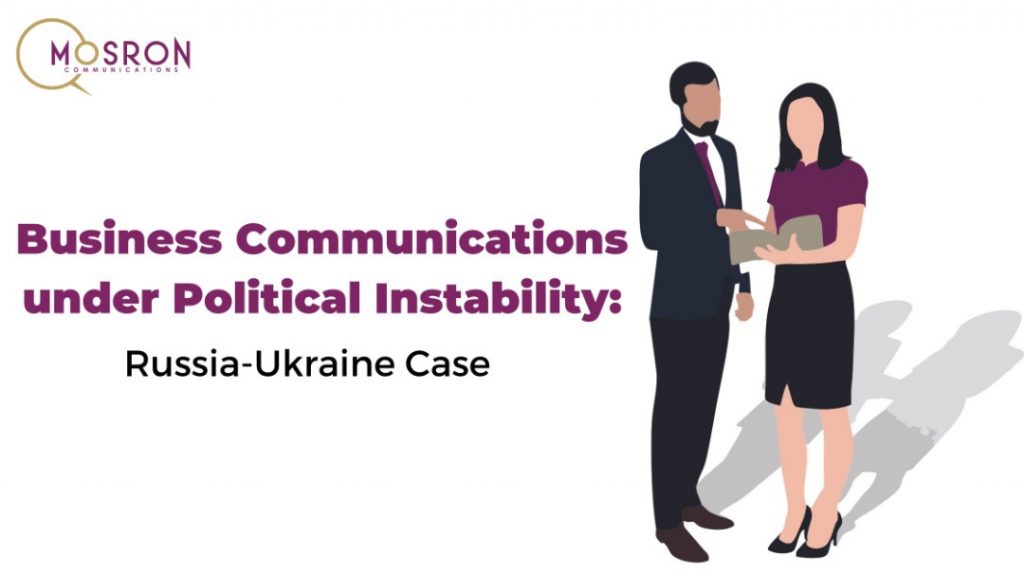Political crises evoke inevitable economic setbacks that impact the operations and profitability of international organisations.
A good example is the trending Russia-Ukraine collision that has the world on its toes, following the news with morbid fascination as history unfolds in our present reality. This situation clearly illustrates how deeply political unrest impacts international economic sustainability. Just within 24 hours, the national economy of one country was clutched by skyrocketing sanctions and looming stagnation in the key sectors while the economy of the other one, which showed 36% growth in the IT sector in 2021, is paralysed by the imposed martial law under which has raised even more anxiety among CEOs than the actual military impact.
If businesses are affected, then corporate communication strategies and methodology will be invariably impacted. Nations are clearly affected as each country begins to grapple with the impact of closed air and sea spaces. Trade and export restrictions, and its impact on third party nations are already being felt in nations like Nigeria that largely depend on Russian wheat supply, as well as fluctuations of oil and gas prices.
Can organisations carry on business as usual, especially if they have presence or key partners in the warring nations? How can an organisation show empathy, yet adjust to the reality of affected operations, at this time?
Our own #MosronPeople team is international and one of our core members resides in a conflicting country. Convinced of the special need for global sensitivity at this time, we share here some of the strategies we have immediately adopted to minimize disruption of work. Organisations can adopt some of these strategies as we all navigate
- Set up backup communication channels for your team — both for external and internal communications. We explain this in detail in our article during the #TwitterBan in Nigeria. Global tech companies are also subject to the laws of the country where they operate from which can be quite sensitive in a \”sanctions mode\”. Prepare to channel your communication across new social media platforms to stay connected with your clients, partners and team members.
- Supply content with added value. With socio-political tension in the air, your audience needs advice and crisis-proof recommendations. Think about how you can help your stakeholders right now and include it in your content plan.
- Equip your CEO with strategic advisory on public speaking. As a book is often judged by its cover, corporate businesses get perceived by how and what their senior executives speak online. Yes, everyone has an opinion about the war, yet executives must more cautious at this time. Journalists will look to get controversial sound bites, and ask leading questions fraut with hidden meanings. Engage communications experts for executives to help prepare content direction that will combine their expertise, professional ethics, emotional intelligence and freedom of expression.
- Monitor industry trends in the countries of interest and analyse available data to aid decision making relevant data and figure out the subjects of your public conversation. You will be a step ahead in your crisis mitigation strategy if you know what is happening around your industry and how it can affect exactly your company.
And our last, yet its important advice — be human-centric in your business communication. Crisis times reveal a special demand for sensitised interactions with brands.
Amidst deafening political clutter, people long to hear a human voice.
#MosronCommunications
#PublicRelationsConsultants
#PartnersNotVendors

